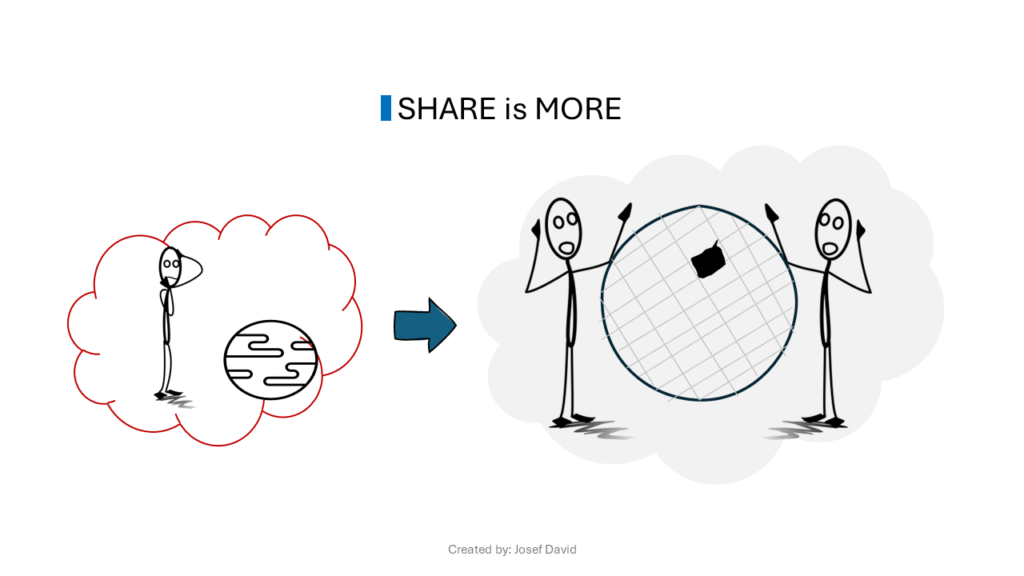Introduction
In the vast spectrum of human behavior, two contrasting tendencies often emerge: sharing and hoarding. While the former is an act of generosity, the latter is a manifestation of selfishness. This discourse aims to delve into these two behavioral patterns, emphasizing the importance of learning to share rather than hoard. We will explore why it is beneficial to share rather than hoard, how to cultivate a sharing mentality, and how to get started on this path.
Why Share and Not Hoard?

Sharing and hoarding are not merely actions; they are reflections of our attitudes towards resources and other individuals.
Sharing is an act of generosity that fosters social cohesion, mutual trust, and empathy. It is a fundamental aspect of human interaction that promotes cooperation and communal harmony.
On the contrary, hoarding is an act driven by fear, insecurity, or greed. It often leads to isolation, mistrust, and social discord.
Hoarding can also lead to an inefficient use of resources as items are kept idle or unused instead of being utilized or circulated for the benefit of others.
From an economic perspective, sharing promotes a more equitable distribution of resources which can lead to overall societal prosperity. Hoarding, however, can result in wealth concentration and inequality.
From a psychological viewpoint, sharing can bring about feelings of satisfaction and happiness. Numerous studies have shown that acts of giving can trigger the release of endorphins – chemicals in our brain that promote a sense of well-being and happiness. Conversely, hoarding can lead to stress and anxiety due to constant worry over protecting one’s accumulated possessions.
How to Share?
Cultivating a sharing mentality requires both introspection and action. Here are some steps you can take:
1. Self-awareness: Recognize your own tendencies towards hoarding or selfishness. Acknowledge these feelings without judgment and understand their root causes.
2. Empathy: Try to understand the needs and feelings of others. This can help you realize the impact of your sharing or hoarding behavior on those around you.
3. Practice generosity: Start with small acts of giving, whether it’s sharing your time, skills, or resources. The more you practice, the easier it becomes.
4. Foster a community spirit: Encourage and participate in communal activities that promote sharing and cooperation.
5. Education: Learn about the benefits of sharing and the negative impacts of hoarding. Knowledge can be a powerful motivator for change.
Getting Started
Embarking on the journey towards becoming more sharing and less hoarding is a personal decision that requires commitment. Here are some ways to get started:
1. Start Small: Begin with small acts of sharing like lending a book to a friend or donating unused items to charity.
2. Set Sharing Goals: Establish clear, achievable goals for your sharing activities. This could be volunteering a certain number of hours each month or donating a set amount to charity each year.
3. Join Sharing Communities: Participate in or create communities that promote sharing such as book clubs, food banks, or carpool groups.
4. Reflect on Your Progress: Regularly assess your progress towards becoming more generous. Celebrate your successes and learn from any setbacks.
Conclusion
In conclusion, learning to share rather than hoard is not just about changing our actions but transforming our attitudes towards resources and other individuals. It is about choosing generosity over selfishness, community over isolation, and happiness over anxiety. By understanding why we should share rather than hoard, learning how to cultivate a sharing mentality, and taking steps to get started on this path, we can contribute to creating a more equitable, harmonious, and happy society.
About